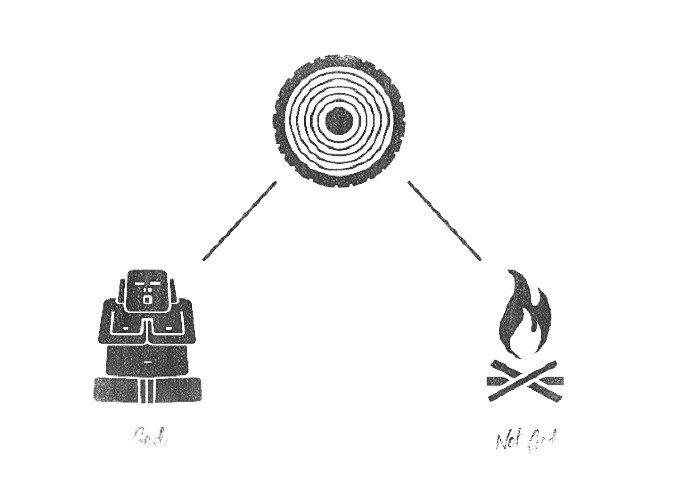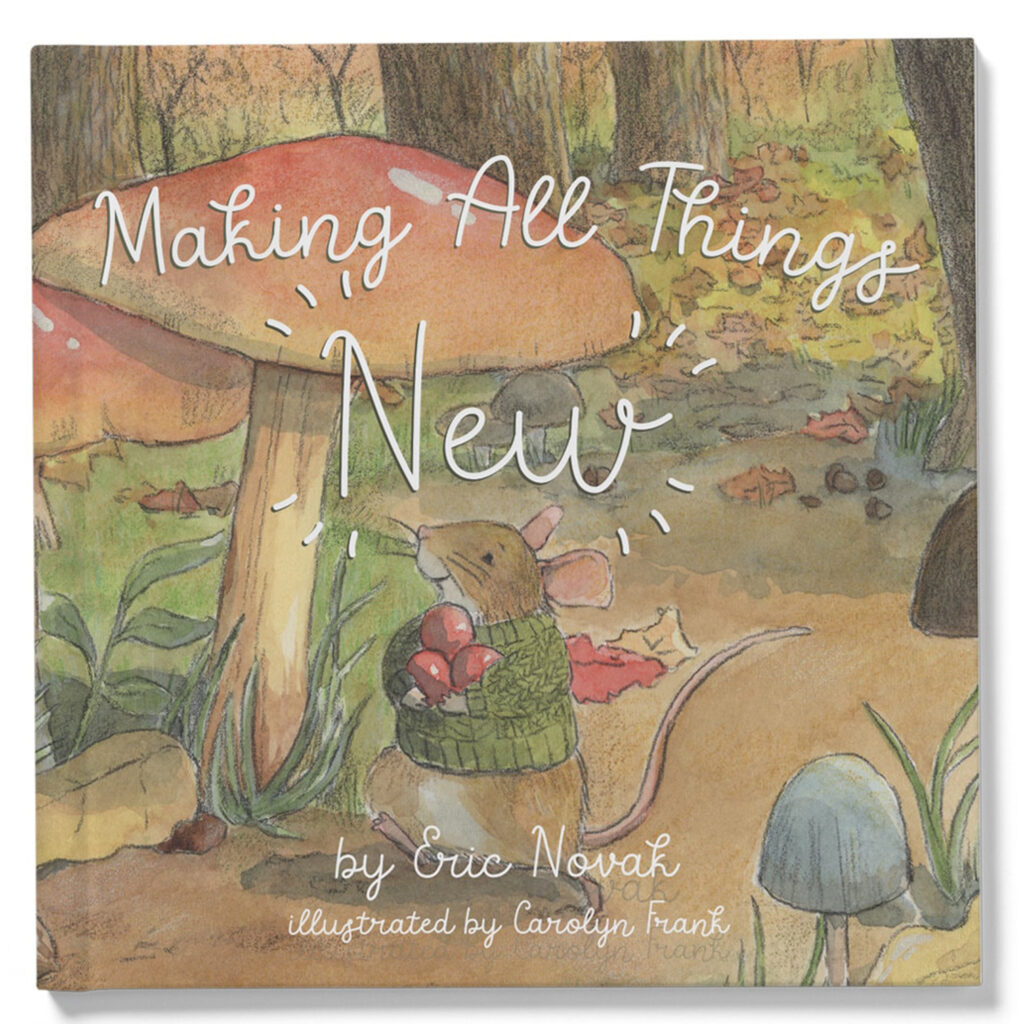The communities that we’re part of, tend to be made up of Christians who are concerned about their health, and don’t want to eat the standard low-fat American diet. They’ve turned to alternate diets and more simplistic and traditional ways of feeding their families. Yet in these communities, we’re so strongly based around bucking the system, that we’re very susceptible to one thing: Blindly following health trends or practices that have nothing to do with keeping our bodies and minds strong, but instead subvert our faith and relationship with God.
Currently Trending: Smudging
“Mystics say the Native American practice of smudging, or purifying a room with the smoke of sacred herbs, can help clear negative energy from a space.” “If you’re feeling stuck, negative, sluggish, or even downright depressed, it may be due to some stagnant energy in your field.” “Smudging can help combat this negativity, clear the energy in your field, and help you start anew.”
Let’s break down the the promises behind the practice of smudging: 1). Something is wrong and it needs to be fixed. 2). The cause of what is wrong is most likely bad energy in your, “energy field.” 3). The best way to deal with that bad energy is combat it by burning herbs.
Getting rid of negative or sluggish feelings sounds great, losing a depressed attitude sounds even better. Burning herbs to combat negative energy? That sounds more like new age spiritualism.

There is no power in smoke and air- moving smoke throughout your house does the same for you as the smoke coming off a bonfire- nothing. Isaiah 44 14-17 talks about the folly of this type of idolatry:
“He cuts down cedars, […] He takes a part of it and warms himself; he kindles a fire and bakes bread. Also he makes a god and worships it; he makes it an idol and falls down before it. Half of it he burns in the fire […] and the rest of it he makes into a god, his idol, and falls down to it and worships it. He prays to it and says, ‘Deliver me, for you are my god!’”
The ultimate promise of the practice of smudging is that it has the power to fix your problems. The ultimate lie is that turning to a spiritual practice instead of turning to God, can result in your freedom, when only God has the power to save. It is only through Christ that we can have the peace of God which “surpasses all understanding” (Philippians 4:4-7). Jesus is the One who came to heal. (Matthew 11:28) and God the Father is the source of peace which is available only through faith in Jesus Christ (Romans 5:1). The process of the Christian should look like:
1). Something is wrong and needs to be fixed. 2). The cause of what is wrong is our sinful and fallen nature on this earth. 3). The best way to deal with our sinful and fallen nature is to call on God in prayer and supplication and find our rest in Him.
No herbal smoke, no burned incense, no cleared negative energy will bring you the peace and joy that is found in Jesus Christ. So how do we discern what health practices are legitimate and acceptable for a Christian?
Ask Four Questions, Read the Word and Pray
Is this practice based off of science or spirituality?
This can be a fine line, but it’s often helpful to start examining a practice by asking if it’s based off of science or spirituality. Yoga is based off spirituality. Eating fresh organic produce is based off of science of the body and what we know about the way our bodies work. If the practice is based off of spirituality, then ask yourself if it can be redeemed.
Can it be redeemed?
For our earlier example, the answer is yes. Yoga, as exercise, as a stretch to strengthen and grow your body, is totally acceptable for the Christian, as long as it has no ties to the spiritual transcendence that Eastern yoga promises. From our earlier example of smudging, smoke has been known to clear the air of 98% bacteria, using it to make your house smell nice and clean up stay bacteria might be a good idea.
What does it accomplish?
Does the practice draw me closer to God? Does it strengthen my body to do His work? Does it help me in my witness to others? Will it make me more devoted to Christ? Will it help me to be filled with the holy spirit? Will it distract me from the spiritual disciplines that are the daily life of a Christian? Will it help me grow in the fruits of the holy spirit? These are the sounding board questions for our daily lives.
What’s your motivator?
What is that deep promise that this practice tells you? Are you motivated by fear? What does this practice accomplish for you that is not being accomplished by reading your bible, investing deeply in prayer and trusting Christ?
Crunchy Lifestyles are Not the Ultimate Goal
It’s easy to get caught up in comparisons, or become a warrior for natural birth, non-GMO lifestyles or gluten free living. However, the fact is that for the Christian, being crunchy isn’t the goal. The goal is glorifying God, trusting Jesus, making disciples (not crunchy disciples), loving our neighbors, and ministering to those in need. Go do these things, and enjoy the life that God has given you.
I always love to hear your thoughts, leave a comment below with your take on crunchy trends!





Great thoughts! I have definitely seen cases where crunchiness becomes religion. I understand. It’s sometimes hard to strike the balance between health and holiness (kind of why I started my blog, ha ha).
Thanks for sharing!
Exactly, I think to some extent it’s just another sin issue that we struggle with as we try to live lives that glorify God. Awesome site! Thanks for commenting!
Why is “science” considered a gauge of whether or not something is acceptable for the Christian? After all, isn’t evolution supposed to be the “scientific” view or origins while creation is “spiritual”? I get the point — looking for objective evidence that something is beneficial, but science is a product of the human mind and reasoning just as much as any false religion. If science becomes a criteria for what is acceptable for a Christian, then science — a human construct — becomes elevated too close to the Word of God and the testimony of the Holy Spirit.
I’ve seen this problem in discussions of biblical counseling — an issue is considered a sin problem unless there’s a scientific test proving otherwise (brain scan, bloodwork, etc.). While it sounds good on the surface, it’s actually horrific! It makes our Western science and technology the test of sin?!? According to that logic, Alzheimer’s was a sin until science and technology could discern that it was a brain disease. Defining (and redefining) sin is NOT the place of any human or any product of the human mind — science included.
In the context of health related practices, I would say that science is a good gauge to test if something is credible or not. I wouldn’t prescribe the same form of examination for sin issues. The first question is only to gauge where the practice is coming from, and if it has deeper roots in spirituality, or if it’s just a general health practice. A good one to test this on would be “grounding.”